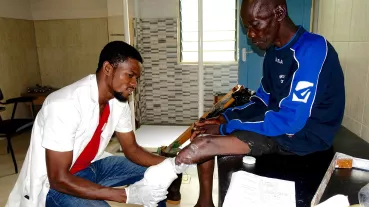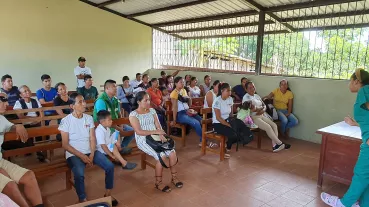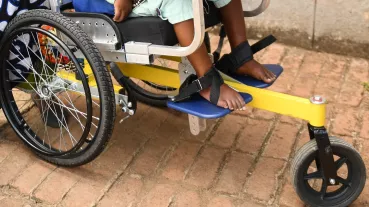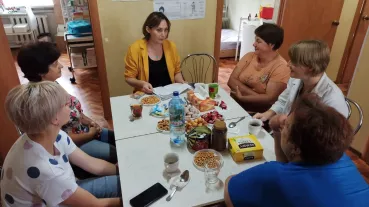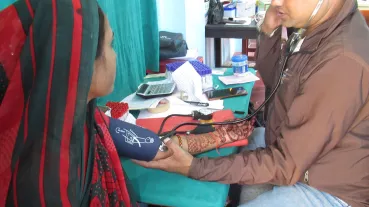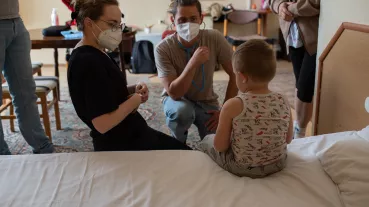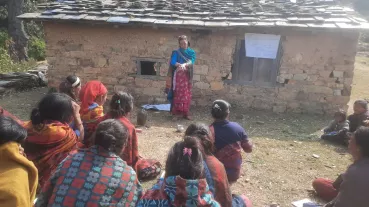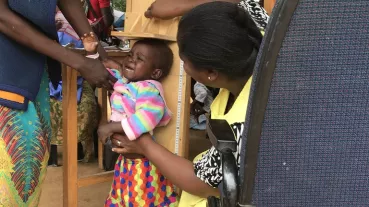Medical Care for Drug Users, their Families, and Communities in Punjab
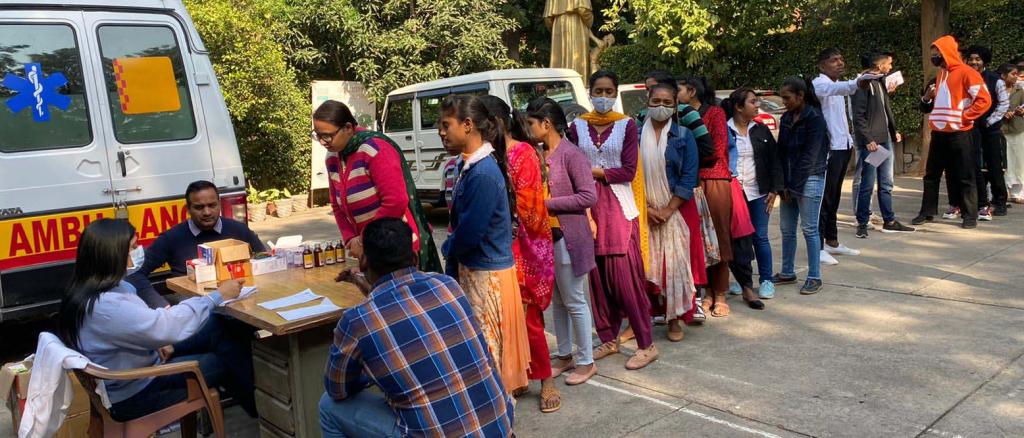
Situation:
27 million people live in the poverty-stricken state of Punjab. Due to a lack of perspective and awareness, and inadequate health care infrastructure, many young people succumb to addiction or are at risk of becoming addicted. Their addiction becomes an additional financial liability for their families, who often already live in poverty and lack the means to take care of their own health.
Objectives:
Most importantly, this project strives to provide adequate health care for addicts and their families as well as other members of the impoverished community of Ghanaur (district Patiala, state of Punjab). People who struggle with addiction will receive the medical care necessary to facilitate withdrawal and rehabilitation. The project also includes measures to create awareness of the dangers of addiction, especially among young people.
- 1.500 addicts and 3.000 family members receive medical care and support during withdrawal and rehab.
- 3.000 people living on the verge of poverty receive medical care
- 2.700 children and teenagers participate in awareness and addiction prevention campaigns.
- Medical and project staff will be hired
- An ambulance and medical equipment will be acquired for the mobile clinic.
- 48 villages on the verge of poverty will receive medical care. If exigent, intervention zones will be set up. The main focus will be on the medical care for children, pregnant women, and the disabled. If necessary, patients will be referred to specialized doctors or to the clinic.
- Circa 1.500 addicts will receive medical care, and, if indicated, referred to the IDU centre in Patiala, where they can safely go through withdrawal. If possible, they should be referred to inpatient rehab. The integrative approach will involve family and the social network of the addict in order to secure an optimal outcome for both the addict and their families. The families will also receive access to medical care.
- The mobile clinic will network and collaborate with the regional public health infrastructure, such as the director of Health Services of the Province of Punjab and the Secondary Hospital in Ghanaur.
- Awareness campaigns have a crucial part to play in this project, in the interest of addiction prevention. Around 2.700 children and youth will participate in awareness and education sessions. In 24 villages, around 12.000 will be educated on addiction and addiction prevention within three years. Four times a year, awareness camps will be conducted, to which village leaders and the public will be invited. Specialists from government hospitals and authorities will educate the public on health and addiction prevention.
This project provides health care infrastructure for impoverished people in remote villages. Long term, the beneficiaries gain knowledge about health related subjects and are encouraged to take charge of their health and seek treatment when necessary. Access to health care being limited in the region makes it hard, especially for people struggling with addiction, to receive adequate treatment and support. This gap will be filled by the project at hand: first by the mobile clinic and referrals to specialists. In the long run, the Salesians of Don Bosco are working towards establishing their own rehabilitation facility, which will be partly financed by the government, in order to provide the best possible service to the Patiala community.
This project provides a solution to a societal problem, which has exacerbated in the past 10-15 years. The approach of this project is not stigmatizing, but rather integrative and holistic – furthering not only addiction prevention, but also a general awareness of health and wellbeing in the remote Patiala community, where access to health care infrastructure has been notoriously sparse. Simultaneously, the project bridges a gap in time – it is meant to be a temporary solution until the new rehab centre of the Salesians of Don Bosco in Patiala is finished. Hence, the project facilitates immediate access to health care urgently needed in the region.
Here you can find further information.
